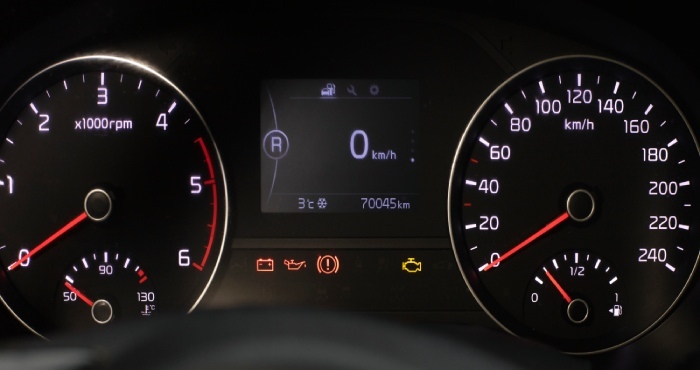Purchasing a new car is typically an exciting experience, but for many individuals each year, it can quickly become a frustrating legal struggle due to faulty vehicles, commonly referred to as “lemons.” Although numerous consumers are informed about their protections under Lemon Laws, many do not recognize that even a simple email to the manufacturer can significantly influence the outcome of their claim.
In this article, we will explore the critical role that this single piece of correspondence plays in your Lemon Law case, offer tips on how to write it effectively, and highlight frequent pitfalls to steer clear of.
The Power of Written Notice
In California and several other states, it’s mandatory to provide written notification to the manufacturer for specific Lemon Law claims. Although some warranties stipulate that you must inform the dealer initially, it is often essential to reach out to the manufacturer directly, particularly if issues continue.
Why does this matter?
Drafting a carefully composed email is an essential part of initiating a Lemon Law claim. This email creates a formal record of your grievance, specifies the problems with your vehicle, and provides the manufacturer with a structured opportunity to respond or make repairs. More significantly, it acts as the official notice that activates your legal rights under the Lemon Law, ensuring that the process adheres to the correct legal procedures. Should your case advance to arbitration or court, this email could become a vital piece of evidence.
Neglecting to send a clear and detailed notice to the manufacturer can seriously harm your Lemon Law claim. The absence of a formal complaint may allow the manufacturer to argue they weren’t given a fair opportunity to fix the issue, leading to delays or even denial of your claim. A San Diego Lemon Law lawyer can help ensure your communication is timely, thorough, and legally sound to protect your rights.
What Should the Email Include?
A single well-crafted email can signal to the manufacturer that you are informed, serious, and ready to enforce your rights. Here’s what it should contain:
1. Your Vehicle Details
Include key identifiers such as:
- Kindly specify the year, manufacturer, and model of your car.
- For precise identification, please include the Vehicle Identification Number (VIN).
- Indicate the date you bought the vehicle along with the mileage noted at that time.
- Also, inform us of your vehicle’s current mileage.
This information ensures there’s no confusion about which vehicle you’re referring to.
2. A Clear Description of the Problem
Be factual, concise, and detailed. Outline:
- Kindly outline any problems or defects you’ve encountered with the vehicle.
- Include the dates when each issue occurred and the dates of any repair attempts.
- Also, mention the dealerships or service centers where you sought these repairs.
Refrain from using emotional or blame-oriented expressions; focus on the details.
For instance:
“I bought the vehicle on January 10, 2024, and have encountered ongoing stalling problems. It was brought in for service on March 2, April 15, and May 28, 2024, at XYZ Dealership. Although the problem was documented during each visit, it remains unresolved.”
3. A Request for Action
State clearly what you want:
- Please specify if there have been any previous attempts to fix the problem.
- Inform us if you have sought or obtained a refund or replacement through the Lemon Law.
- State whether a customer service representative or case manager has reached out to you about this issue.
This communicates your expectations and helps initiate a formal process.
4. Proof of Prior Repairs
Attach or mention service invoices or work orders. These documents are critical for proving the number of repair attempts.
Timing is Everything
When is the ideal time to send this email?
As soon as possible.
Numerous Lemon Law regulations stipulate that manufacturers must be allowed a fair chance to fix the issue. This usually entails three to four attempts (or even more) or if the vehicle has been non-operational for 30 days or longer.
By sending the email promptly:
- You initiate the timeline for your Lemon Law entitlements
- You safeguard yourself against claims that the manufacturer was uninformed
- You demonstrate your willingness to cooperate in good faith
Postponing communication with the manufacturer could work against you if they argue they weren’t given the chance to rectify the situation.
Real-World Example: A Tale of Two Emails
Let’s explore how two similar cases had dramatically different outcomes based on email communication.
Case 1: The Prepared Consumer
Sarah bought a brand-new SUV, but after experiencing three transmission malfunctions, she reached out to the customer service team of the manufacturer via email. In her correspondence, she:
- Provided her vehicle identification number (VIN)
- Outlined each repair attempt along with the corresponding dates
- Included the records of the repairs as attachments
- Asked for either a refund or a replacement in accordance with California’s Lemon Law
The manufacturer replied within a few days, assigned a case manager to her situation, and within six weeks, Sarah received a replacement vehicle—all without needing to resort to legal action.
Case 2: The Verbal Complainer
Mark encountered a similar problem with his truck. He reached out to the dealership several times but failed to provide any written communication. When he eventually submitted a Lemon Law claim, the manufacturer contended that they had not been properly notified and thus hadn’t been given the opportunity to resolve the issue. The court ruled in favor of the manufacturer, resulting in the dismissal of Mark’s claim.
The lesson here: Sending a simple email can safeguard your rights, while neglecting to do so might forfeit them entirely.
Legal Backing: California’s Lemon Law Requirements
Sensible Repair Opportunities:
In accordance with California’s Song-Beverly Consumer Warranty Act, it is necessary for consumers to allow manufacturers a fair number of opportunities to remedy any defects. This stipulation ensures that the manufacturer can attempt to resolve the problem prior to any legal proceedings being initiated.
Requirement for Written Notification:
Certain manufacturer warranties stipulate that consumers must send a written notification regarding the defect before they can qualify for a vehicle buyback. Neglecting to provide this notification could jeopardize your rights under the Lemon Law.
If the manufacturer did not receive adequate notice, there is a possibility that the court may dismiss the case altogether. Even if the case is not dismissed, this failure can cause significant delays in reaching a resolution.
What Happens After You Send the Email?
After you send your email, various outcomes may occur:
- A case manager from the manufacturer may be designated: Typically, this individual will assist you in navigating their internal procedures.
- You could be given the chance for another repair: This is a common occurrence, particularly if you haven’t hit the limit for “reasonable attempts.”
- A settlement proposal might come your way: Options such as refunds, replacements, or cash-and-keep arrangements could be suggested.
- If you don’t hear back, consider seeking legal advice: Should the manufacturer disregard your email or delay their response, it’s advisable to reach out to a Lemon Law attorney.
Mistakes to Avoid
One small error in your email could put your claim at risk. Be cautious of the following:
- Vague or Emotional Language: Keep your email factual and professional—avoid venting or using accusatory language. Legal claims are stronger when supported by calm, clear communication and solid documentation.
- Sending to the Wrong Address: Always verify the correct email address, typically listed on the manufacturer’s website or in the warranty guide. Some companies have specific departments just for Lemon Law claims.
- Failing to Attach Repair Records: Attach all repair invoices and service records to support your case. Without proof of attempted repairs, it’s much harder to demonstrate a recurring issue.
- Waiting Too Long: Lemon Law claims often have strict deadlines, which vary by state. Delaying your action can mean losing your right to compensation entirely.
Why an Email is Stronger Than a Phone Call
Oral grievances may be overlooked, ignored, or misunderstood. On the other hand, emails:
- Compile a detailed written account that captures all pertinent information and interactions concerning the issue at hand.
- Make sure this documentation is readily transferable to legal representatives or arbitrators should the need for legal action arise.
- Utilize this record to effectively illustrate your sincere attempts to address the situation independently prior to involving external parties.
These communications can serve as valid evidence in legal proceedings, illustrating that you adhered to proper legal procedures.
Final Thoughts: The Email That Changes Everything
Your California Lemon Law case may involve multiple parties—dealers, manufacturers, and even attorneys. But often, the turning point in your journey toward a successful resolution begins with just one well-crafted email.
This email becomes your proof, your voice, and your shield.
Before escalating to legal action, before frustration takes over, and before letting the dealership continue to dodge responsibility—send that email. When guided by an experienced California Lemon Law lawyer, it could be the critical step that sets the stage for a favorable outcome.








